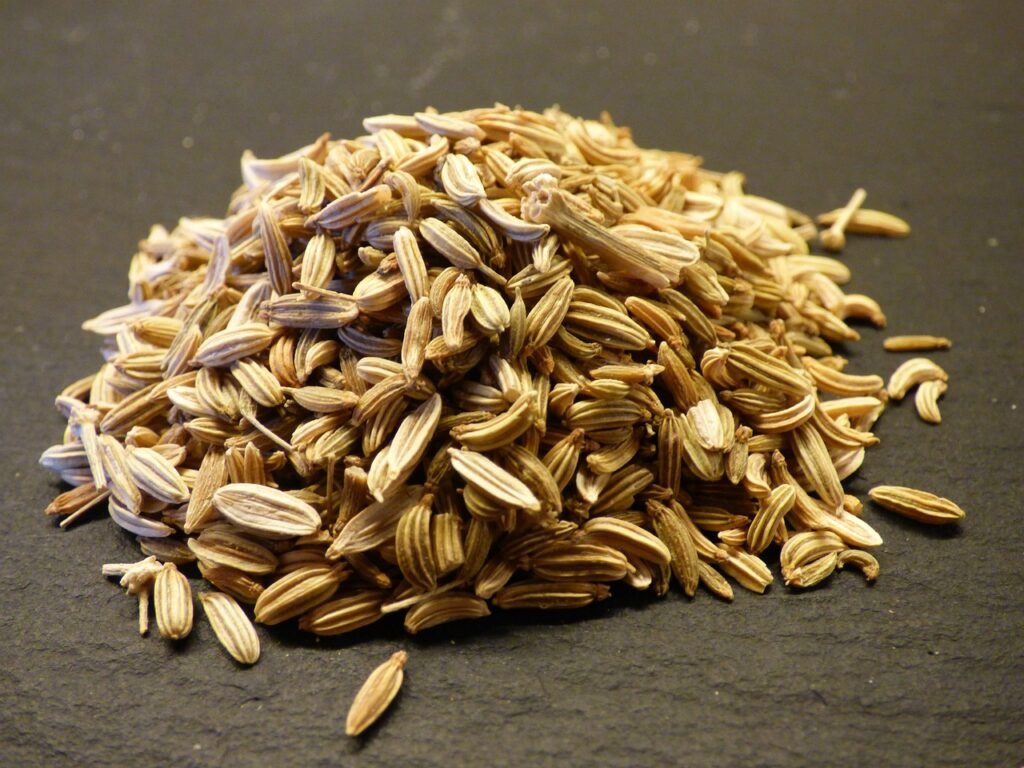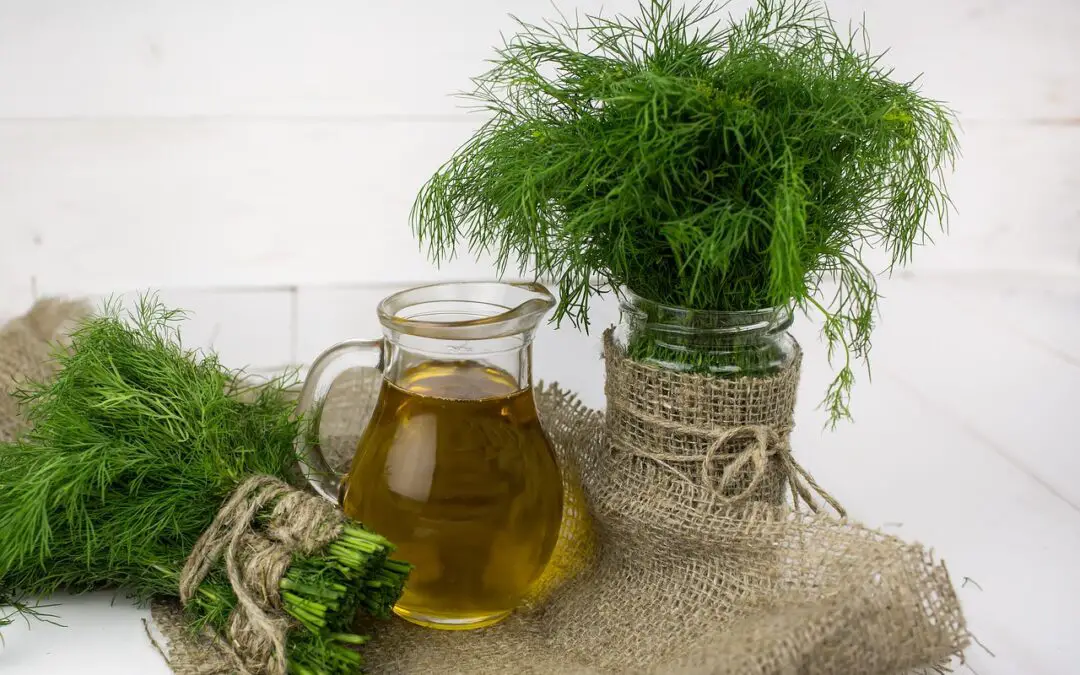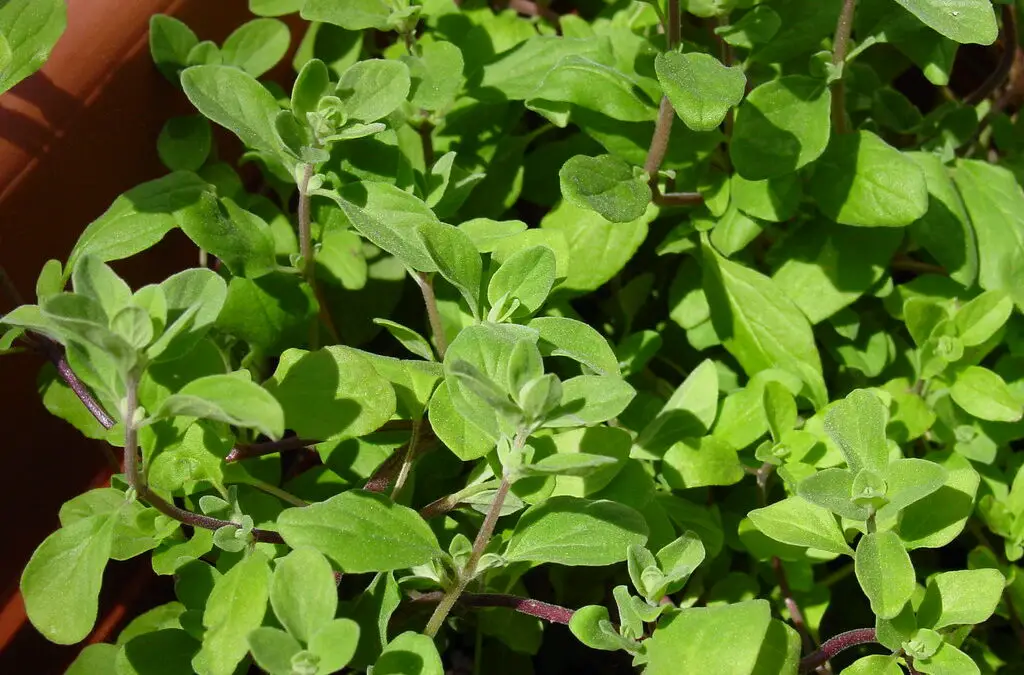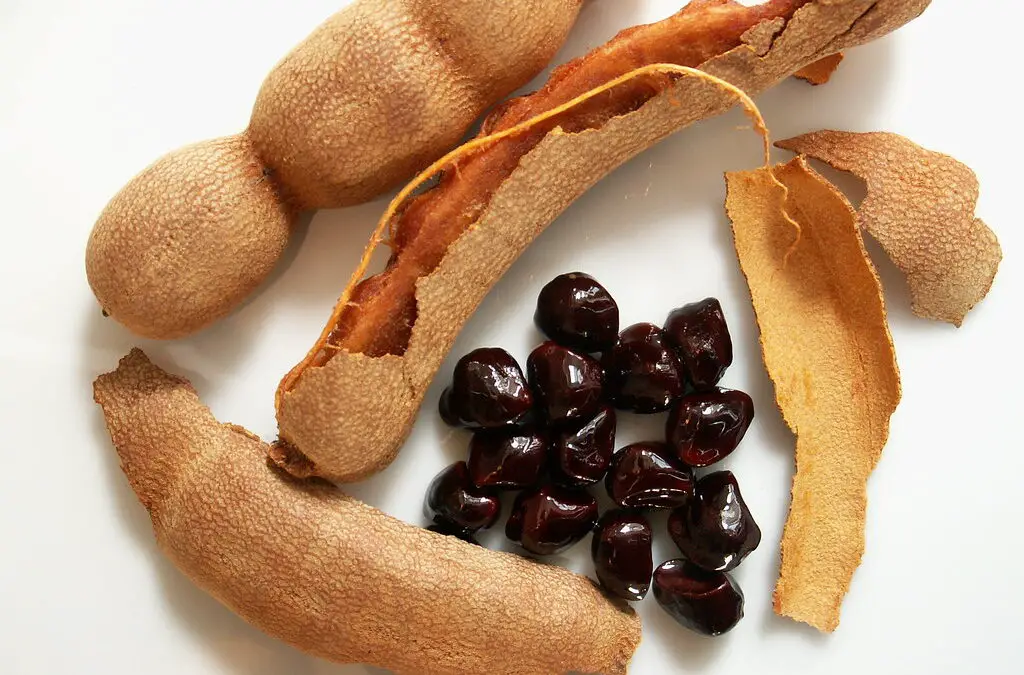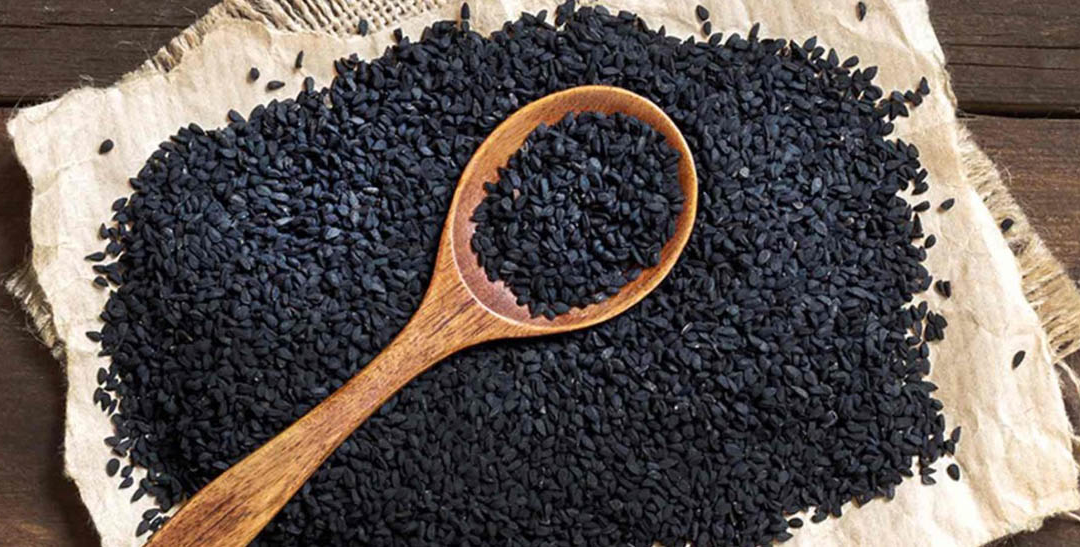Fennel seeds are a staple ingredient in Middle Eastern cuisine, adding a unique flavor and aroma to a variety of dishes. Originating from the Mediterranean region, these small oval-shaped seeds are derived from the fennel plant. Today, they are cultivated in various regions across the globe. They have been used for centuries for both culinary and medicinal purposes.
In Middle Eastern cuisine, fennel seeds are commonly used in spice blends, marinades, and rubs for meats and vegetables. They are also used to flavor soups, stews, and rice dishes. They have a sweet, licorice-like flavor that pairs well with savory ingredients like garlic and cumin. In addition to their culinary uses, they are believed to have numerous health benefits, including aiding digestion and reducing inflammation.
History of Fennel Seeds
Fennel seeds have a rich history in Middle Eastern cuisine. They have been used for thousands of years as a spice, a medicine, and even as a talisman to ward off evil spirits.
Historically, they were highly valued for their medicinal properties. Throughout ancient history, these seeds were employed to address diverse health concerns such as digestive ailments, respiratory disorders, and even snake bites. These seeds were also believed to have magical properties and were used in various rituals and ceremonies.
They have been an important part of Middle Eastern cuisine for centuries. They are commonly used in dishes such as stews, soups, and salads. In addition to their unique flavor, fennel seeds are also known for their digestive properties and are often consumed after meals to aid in digestion.
Today, fennel seeds continue to be an important ingredient in Middle Eastern cuisine. They are also used in many other cuisines around the world, including Indian, Italian, and Chinese. Whether used for their flavor or their medicinal properties, they remain a popular and versatile spice.
Cultivation and Harvesting of Fennel Seeds
Fennel is a flowering plant that is native to the Mediterranean region and is widely used in Middle Eastern cuisine. These seeds are a popular spice that is used in a variety of dishes, including soups, stews, and curries. Cultivating and harvesting fennel seeds is a relatively simple process that can be done in a home garden.
Fennel plants prefer a sunny location with well-drained soil. They can be grown from seeds or seedlings and should be planted in the spring or fall. Fennel plants grow to be about three feet tall and have feathery leaves and yellow flowers. The flowers eventually turn into seeds, which can be harvested once they have turned brown.
To harvest the seeds, wait until the flowers have dried out and the seeds have turned brown. Cut the flower heads off the plant and place them in a paper bag. Hang the bag upside down in a cool, dry place for a few weeks to allow the seeds to dry out completely. Once the seeds are dry, remove them from the flower heads and store them in an airtight container.
The seeds have a sweet, licorice-like flavor and are a versatile spice that can be used in a variety of dishes. They are commonly used in Middle Eastern cuisine to flavor meat dishes, soups, and stews. They can also be used to make tea, which is said to have a calming effect on the digestive system.
Overall, cultivating and harvesting the seeds is a simple process that can be done in a home garden. With a little bit of patience and care, you can enjoy the delicious flavor of these seeds in your favorite Middle Eastern dishes.
Nutritional Value of Fennel Seeds
Vitamins
Fennel seeds are an excellent source of vitamins, especially vitamin C. A 100-gram serving of the seeds provides about 21% of the recommended daily intake of vitamin C. Vitamin C is essential for the growth and repair of tissues in the body, and it also helps the immune system fight off infections.
Minerals
Fennel seeds are rich in minerals such as calcium, iron, and potassium. Calcium is essential for strong bones and teeth, while iron is necessary for the production of hemoglobin, which carries oxygen in the blood. Potassium helps regulate blood pressure and keeps the heart healthy.
Fiber
Fennel seeds are a good source of dietary fiber. A 100-gram serving of these seeds contains about 39 grams of fiber. Fiber is essential for maintaining a healthy digestive system and helps prevent constipation.
Overall, they are a nutritious addition to Middle Eastern cuisine. They are often used in spice blends and seasoning mixes for dishes such as lamb and chicken. Fennel seeds can also be used in teas and desserts. With their high vitamin and mineral content, these seeds are a great way to add flavor and nutrition to your diet.
Health Benefits of Fennel Seeds
Fennel seeds are commonly used in Middle Eastern cuisine to add flavor and aroma to dishes. But did you know that they also offer a range of health benefits? Here are some of the ways these seeds can help improve your health.
Digestive Health
Fennel seeds are known for their digestive properties and have been used for centuries to treat digestive issues. They contain anethole, a compound that can help relax the muscles of the digestive tract and reduce bloating, gas, and constipation. They also stimulate the production of digestive juices, which can aid in the digestion of food.
Respiratory Health
These seeds have been used for centuries to treat respiratory issues such as coughs, colds, and asthma. They contain compounds that have anti-inflammatory and antimicrobial properties, which can help reduce inflammation in the respiratory tract and fight off infections. they can also help soothe a sore throat and reduce coughing.
Heart Health
Fennel seeds contain antioxidants that can help protect the heart from damage caused by free radicals. They also contain compounds that can help lower blood pressure and cholesterol levels, which can reduce the risk of heart disease. They may also help improve blood flow to the heart and reduce the risk of blood clots.
In summary, fennel seeds offer a range of health benefits, particularly in the areas of digestive and respiratory health, as well as heart health. Incorporating these seeds into your diet can be a tasty and healthy addition to your meals.
Culinary Uses of Fennel Seeds
These seeds are a staple in Middle Eastern cuisine, adding a distinct licorice-like flavor to dishes. They are commonly used in baking, cooking, and even beverages.
In Baking
They are a great addition to baked goods, adding a unique flavor to sweet treats. They can be used in bread, cookies, cakes, and pastries. In Middle Eastern cuisine, these seeds are often used in baking traditional sweets like baklava and halva.
In Cooking
They add a depth of flavor to savory dishes as well. They are commonly used in meat dishes, such as lamb or beef, and can be added to soups and stews to enhance the flavor. In Middle Eastern cuisine, these seeds are often used in spice blends like za’atar and ras el hanout.
In Beverages
Fennel seeds can also be used to make flavorful beverages. They are commonly used in tea blends, adding a sweet and aromatic flavor. Fennel seed tea is also believed to have health benefits, aiding in digestion and reducing inflammation.
Overall, these seeds are a versatile ingredient in Middle Eastern cuisine, adding a unique flavor to a variety of dishes.
Potential Side Effects of Fennel Seeds
These seeds are generally safe to consume in small amounts and are commonly used in Middle Eastern cuisine. However, consuming large amounts of fennel seeds or using fennel seed supplements may lead to potential side effects.
Gastrointestinal Issues
These seeds are known to have a relaxing effect on the muscles in the digestive tract, which can help alleviate digestive issues such as bloating and constipation. However, consuming large amounts of the seeds can have the opposite effect and lead to diarrhea, nausea, and vomiting.
Allergic Reactions
In certain individuals, consumption of these seeds may trigger an allergic reaction, resulting in symptoms like hives, itching, and breathing difficulties. If you encounter any of these signs, it is vital to seek immediate medical assistance.
Hormonal Effects
The seeds contain compounds that can mimic the effects of estrogen on the body. While this can be beneficial for women experiencing menopause symptoms, it can also be harmful for individuals with estrogen-sensitive cancers or conditions such as endometriosis.
Blood Clotting
The seeds contain a compound called anethole, which has been shown to have anticoagulant properties. While this can be beneficial for individuals with blood clotting disorders, it can also increase the risk of bleeding and bruising in individuals taking blood-thinning medications.
Overall, fennel seeds are a safe and healthy addition to Middle Eastern cuisine when consumed in moderation. However, individuals with underlying health conditions or taking medications should consult with a healthcare provider before consuming fennel seed supplements or consuming large amounts of seeds.
Fennel Seeds in Traditional Medicine
Ayurveda
In Ayurveda, an ancient system of medicine in India, fennel seeds are believed to have a cooling effect on the body and can help improve digestion. They are often used to treat digestive issues such as bloating, gas, and constipation. The seeds are also believed to have a calming effect on the mind and can help reduce anxiety and stress.
According to Ayurveda, fennel seeds are considered to have sweet and cooling energy, making them ideal for balancing the Pitta dosha, which is associated with heat and fire. The seeds are often used in Ayurvedic cooking to add flavor and aid digestion.
Traditional Chinese Medicine
In Traditional Chinese Medicine, these seeds are believed to have a warming effect on the body and can help regulate the flow of Qi, or life force energy. These seeds are often used to treat digestive issues such as bloating, gas, and indigestion. They are also believed to have a calming effect on the mind and can help reduce anxiety and stress.
According to Traditional Chinese Medicine, the seeds are considered to have sweet and warm energy, making them ideal for balancing the Spleen and Stomach meridians. The seeds are often used in Chinese cooking to add flavor and aid digestion.
Overall, fennel seeds have been used for centuries in traditional medicine to treat a variety of ailments. While more research is needed to fully understand their medicinal properties, incorporating them into your diet can be a flavorful way to support your digestive health.
Conclusion
Fennel seeds are a staple in Middle Eastern cuisine, adding a unique flavor and aroma to various dishes. These seeds are packed with nutrients and health benefits, making them a valuable addition to any diet.
Whether used as a spice or a natural remedy, the seeds have been used for centuries for their medicinal properties. They are known to aid in digestion, reduce inflammation, and even boost immunity. These seeds are also a great source of antioxidants, which can help protect the body against free radicals and oxidative stress.
In addition to their health benefits, fennel seeds are incredibly versatile in cooking. They can be used to flavor soups, stews, and curries, or added to salads and roasted vegetables for a burst of flavor. These seeds can also be used to make tea, which is a popular beverage in many Middle Eastern countries.
Overall, the seeds are a must-have ingredient in any Middle Eastern kitchen. They offer a unique flavor and aroma, along with numerous health benefits. By incorporating fennel seeds into your cooking and diet, you can enjoy the many benefits that this spice has to offer.

